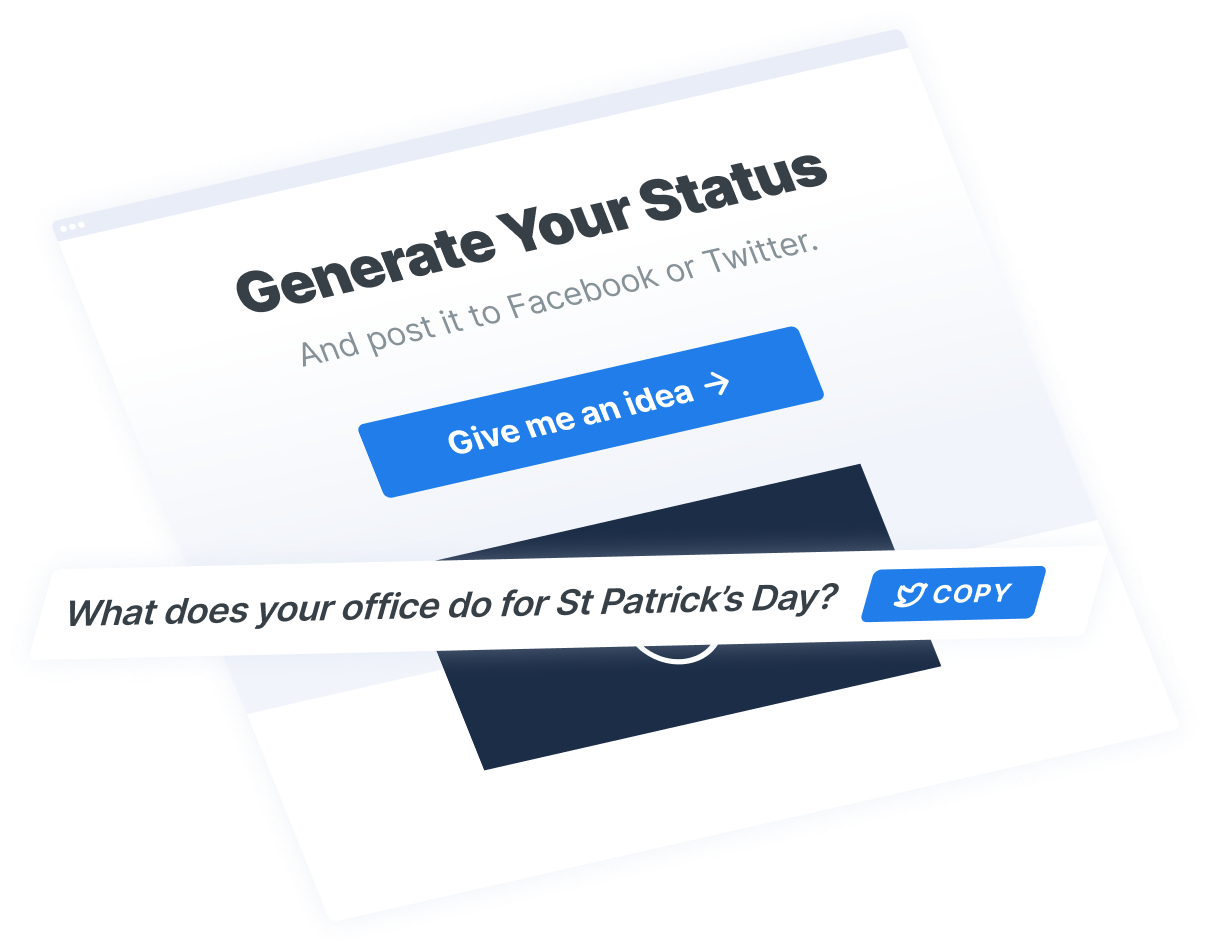- Home
- Blog
- Social Media
- What is Social Media Compliance? A Beginner’s Guide
What is Social Media Compliance? A Beginner’s Guide
-
 Published: Nov 22, 2023
Published: Nov 22, 2023
-
 8 min. read
8 min. read
-
 Savannah Swanson
Savannah Swanson Lead Digital & Social Trends Writer
Lead Digital & Social Trends Writer
- Savannah is a content marketer with editorial experience spanning several businesses. Specializing in social media and marketing trends, she loves talking about the latest developments in online marketing. When she’s not writing, Savannah loves traveling, hoarding books and coffee mugs, and adoring her cat. Please don’t ask her about famous true crime cases, or else she’ll tell you all about her theories and get absolutely no work done.
In a world where seemingly everything is available with just a few taps on your phone, it’s all the more important for businesses to actively use social media. Social media gives businesses the chance to connect with their audiences in ways traditional marketing tactics can’t quite replicate.
But as social media usage becomes increasingly necessary for businesses to reach customers, social media compliance is even more important to address. You don’t want to run into risks like potential legal or regulatory trouble.
Today we’re talking about the ins and outs of social media compliance, including:
- What is social media compliance?
- Common social media compliance risks
- General social media compliance laws and regulations
- Social media compliance by industry
- 5 tips to ensure social media compliance for your business
Want to stay up to date on the latest happenings in the digital marketing world? Subscribe to WebFX’s Marketing Manager Insights to get the latest developments in all things digital marketing, including social media.
Join 200K smart marketers for the hottest marketing news and insights in your inbox. “*” indicates required fieldsDon’t miss our Marketing Manager Insider emails!
Inline Subscription Form


What is social media compliance?
Social Media Compliance
Social media compliance is the ongoing practice of following regulatory rules and guidelines on social media platforms. These guidelines protect and ensure data privacy, intellectual property rights, and sensitive information, and help moderate advertising and online content.
Social media compliance regulations and laws can vary depending on industry and location, so it’s vital that all businesses know and understand the regulations that apply to their business. Violating social media compliance guidelines can result in several problems, including:
- Legal issues
- Reputation damage
- Exposure of sensitive customer or employee information
Common social media compliance risks
As we mentioned earlier, social media compliance policies and standards protect private data, sensitive information, and more.
While regulations vary based on industry, there are a few general social media compliance risks that all social media-savvy businesses should be aware of, no matter what industry they’re in:
- Data privacy and security
- Intellectual property rights
- Advertising messaging
- Social platform content guidelines
- Employee online conduct
- Defamation
General social media compliance laws and regulations
Along with common risks, there are some general social media compliance laws and regulations that all businesses should know when posting things online. Below are key laws to know so you can ensure you’re compliant with social media regulations.
- Federal Trade Commission (FTC): The FTC is a US government agency that protects American consumers from deceptive advertising and “anticompetitive, unfair business practices.”
- US Food and Drug Administration (FDA): The FDA protects public health by ensuring the safety of food, beverages, drugs and pharmaceuticals, and more. On social media, the FDA closely regulates posts with claims regarding food, beverages, and supplements to ensure false or misleading claims don’t spread.
- Health Insurance Portability and Accountability Act (HIPAA): HIPAA pertains to the healthcare industry, protecting sensitive patient health information. This includes data, current and past medical conditions, healthcare payments, and more.
- General Data Protection Regulation (GDPR): The GDPR is an EU law that protects consumer data through strict regulations on how data is collected and used by those who market to EU individuals.
- Financial Industry Regulatory Authority (FINRA): FINRA protects consumers from financial firms who may use false or misleading claims. This extends to social media influencers.
- Family Educational Rights and Privacy Act (FERPA): FERPA protects the privacy of student information like education records. This law applies to educational institutions and those marketing for these facilities.
- California Consumer Privacy Act (CCPA): CCPA gives consumers more control over personal information businesses collect about them. This includes the right to opt out of the sale or sharing of personal information and to delete information collected from them.
- Copyright and trademark laws: Copyright and trademark laws protect intellectual properties from being used unlawfully by others. This includes using copyrighted or trademarked content on social media for business or advertising purposes.
Social media compliance by industry
Social media compliance is necessary across all industries, but there are three particular sectors where regulations are crucial:
Social media compliance for financial institutions
The financial industry is heavily regulated on social media, and for good reason. After all, money is important, and so is customers’ private information. In the financial sector, there are two major compliance laws to be aware of.
Key Compliance Laws for Finance Industries
- FINRA
- Gramm-Leach-Bliley Act (GLBA): GLBA requires financial institutions to explain their information-sharing practices to customers and protect sensitive data.
FINRA is an incredibly important law to be aware of, as it protects consumers from false or misleading claims by financial firms, including banks and insurance agencies.
When marketing on social media for financial firms, the best way to comply with laws like FINRA is to be transparent. Educate your audience about financial issues, topics, and common questions, but don’t present outlandish claims, and avoid offering up personalized information to followers.
Social media compliance for healthcare
The healthcare sector is heavily regulated to protect private and sensitive patient information. Two major regulations are at play here, and when talking about social media, they should always be top of mind.
Key Compliance Laws for Healthcare Industries
- HIPAA
- Protected Health Information (PHI): PHI refers to sensitive information about patients like patient names (and nicknames), medical records, social security numbers, addresses, and more.
Like financial firms, protecting personal and sensitive information on social media boils down to being transparent and avoiding unrealistic claims that could spread false narratives. The healthcare industry deals with a variety of sensitive topics, so it’s crucial institutions address those topics with the utmost care when talking about them on their social pages.
WebFX helps companies like yours reach their business goals.
See Case StudySocial media compliance for government agencies
Government agencies can range from local city and state government accounts to larger or more prominent entities like political figures and governing bodies. That said, regulations are critical when those entities are on social media.
Social media compliance for government agencies includes various laws, but there are two key regulations to be aware of.
Key Compliance Laws for Government Agencies
- Freedom of Information Act (FOIA): FOIA mandates the public has access to government records. This includes social media posts. Under FOIA, government social accounts shouldn’t block followers.
- GDPR
Social media compliance regulations for government agencies protect citizens from many risks, the most important being the spread of misinformation. Like the healthcare industry, the best way to stay within regulations is to be transparent and share helpful information without personalizing it to individual people.
Combat misinformation by sharing truthful, verifiable information.
5 tips to ensure social media compliance for your business
Now that we’ve covered some social media compliance risks and regulations to look out for, let’s switch gears and talk about how you can avoid those risks. Keep reading to learn five tips to ensure social media compliance for your team and business.
1. Understand your industry’s rules and regulations
The most important step you can take to ensure social media compliance for your team is to know and understand the laws and regulations that apply to your industry.
As we said earlier, regulations can vary depending on your industry, so take the time to research and identify which social media compliance laws pertain to you. Going a step further, you should regularly review your industry’s regulations to ensure nothing new has come up.
Laws and regulations can change, so the best way to remain social media compliant is to stay on top of it.
2. Monitor your account activity and access
You know the phrase, “Too many hands in the pot will spoil the sauce?” Adopt that mindset when it comes to who on your team you give access to your brand’s social media accounts. Limiting the number of people accessing your brand’s social accounts can significantly reduce the risk of violating compliance guidelines.
Along with limiting account access, monitor your social media activity across all platforms, from posts interacted with to follower engagement. Social media monitoring is crucial, especially in financial, healthcare, and government industries.
While you may not share private information in your posts, there’s still a chance it could inadvertently happen through interactions with followers.
3. Create a content library
Another way to comply with social media guidelines is to build a content library of pre-approved posts. Having a library stocked with compliant content can improve your workflow by having posts ready to go rather than spending time creating content.
Building a pre-approved content library also means you can post on your social channels with the confidence that all of it is 100% in line with social media compliance regulations.
Your content library doesn’t have to contain posts that are ready to post either — you can also create guideline-compliant templates for different posts to streamline your content workflow without worrying about cutting corners.
4. Train your employees on proper social media usage
Invest in regular training on social media compliance to ensure your team is familiar with your industry’s regulations and knows how to spot potential risks.
Social media compliance regulations can change, so providing regular training helps your team stay on top of the latest developments concerning social media conduct and regulations.
5. Establish social media compliance guidelines
Reinforce your training by establishing your own set of social media compliance guidelines. This can provide continued compliance education for your team, with policies tailored specifically to your business and industry.
Your business’s social media compliance guidelines should include why social media compliance is important and tips to mitigate risks and avoid violations.
Social media compliance guidelines may also include different policies, such as:
- Content approval processes
- Acceptable use policies
- Privacy policies
- Guidelines regarding personal social media use by employees
Recommendations and tips straight from our subject matter experts!Social Media Marketing for Businesses

Effectively manage your social media with WebFX
Staying on top of your social media accounts is a breeze when you partner with WebFX. We are an industry-leading social media agency, with local offices from our Fort Myers social media agency hub to our Baltimore hub.
With over 29 years of experience helping clients create and manage showstopping social media campaigns, we know a thing or two about staying within social media compliance regulations.
See what WebFX is all about by giving us a call at 888-601-5359 or contacting us online today to learn more about our social media management services.
-
 Savannah is a content marketer with editorial experience spanning several businesses. Specializing in social media and marketing trends, she loves talking about the latest developments in online marketing. When she’s not writing, Savannah loves traveling, hoarding books and coffee mugs, and adoring her cat. Please don’t ask her about famous true crime cases, or else she’ll tell you all about her theories and get absolutely no work done.
Savannah is a content marketer with editorial experience spanning several businesses. Specializing in social media and marketing trends, she loves talking about the latest developments in online marketing. When she’s not writing, Savannah loves traveling, hoarding books and coffee mugs, and adoring her cat. Please don’t ask her about famous true crime cases, or else she’ll tell you all about her theories and get absolutely no work done. -

WebFX is a full-service marketing agency with 1,100+ client reviews and a 4.9-star rating on Clutch! Find out how our expert team and revenue-accelerating tech can drive results for you! Learn more
Twitter and Facebook Status Generator
Finding engaging social media content for your business can be difficult. Use our tool to quickly find ideas and post directly to your page.
Give Me an Idea

Social Media Success Story

Proven Marketing Strategies
Twitter and Facebook Status Generator
Finding engaging social media content for your business can be difficult. Use our tool to quickly find ideas and post directly to your page.
Give Me an Idea
What to read next





